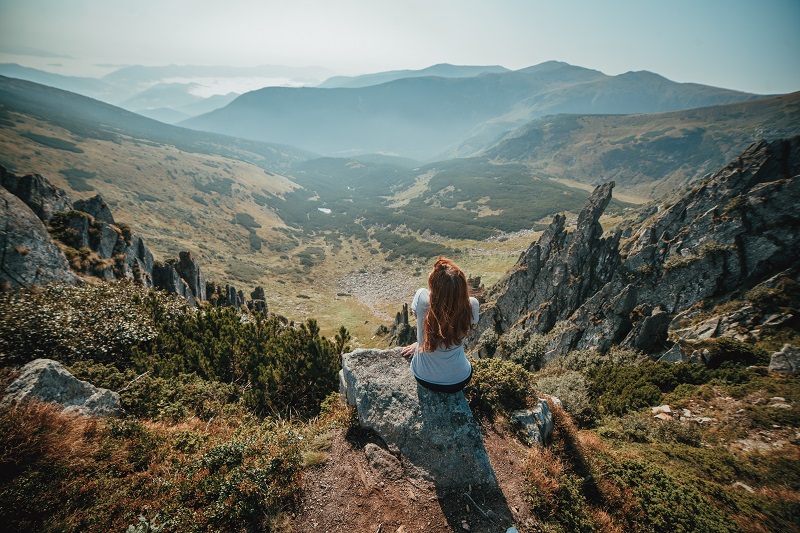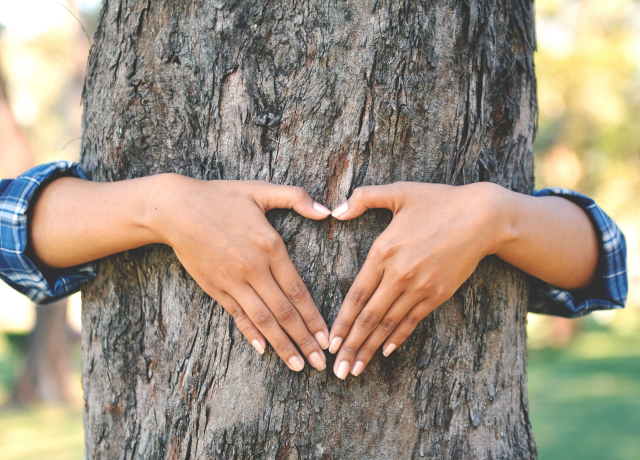European Heritage Days Article:
Sustainable Heritage event ideas: Nature and Biodiversity
European Heritage Days Article:
Sustainable Heritage event ideas: Nature and Biodiversity
Be inspired by the Sustainable Heritage Brochure
The brochure for this year’s European Heritage Days shared theme is full of tips and advice on how to support the Sustainable Heritage theme, and within this there is a specific section featuring inspiring ideas for nature and biodiversity events! Here are a few to get started:
An important part of Sustainable Heritage is how communities engage with nature in a responsible way. One idea for demonstrating this could be a trip to a rural area to discover the work local farmers and landowners are doing to cultivate and manage their land and the increasing priority being placed on biodiversity. Why not organise a hedgerow planting workshop or a woodland walk with a forest manager to show the techniques being used? Geology and natural landscapes are another perspective to take; whether your area has interesting rock formations or fascinating waterways, consider planning tours and talks explaining the local community’s relationship with the environment.
Historic relationships with the environment are a good topic too such as exploring the history of crafts, as many of these traditional skills developed in response to local resources. A walk through the area with a geographer could help explain where materials such as clay or stone came from, while pottery, weaving or stonemasonry demonstrations from local craftspeople will really help bring these skills to life. Or go further back in time and hold workshops to teach the basic skills and use of natural resources our ancestors needed to survive in the wildness, from lighting a fire to purifying water.
Plants and vegetation are another topic to cover. Ancient trees, for example, often play a particularly significant role in our societies – raise awareness of them as cultural monuments by exploring the traditions and stories told about them or organise a community ceremony to plant a tree which can then be enjoyed by future generations. Another idea is to encourage appreciation of the detail and diversity of the foliage and petals of wildflowers with a painting workshop to look at flowers through the eyes of a 19th century botanical artist.
Wildlife and supporting biodiversity is an essential part of our sustainable future. Help encourage visitors to think about how they can turn their gardens into a haven for wildlife through workshops to build a garden wormery which can make compost, or by building an ‘insect hotel’ to create a home for beetles, ladybirds and butterflies. Bird watching or bird song listening is another way to engage people, as is a community count of species seen in your area… your event could perhaps look specifically at the changes seen during the pandemic and how this has affected local populations of endangered species.

Use learnings from previous years
While this year’s theme is particularly focusing on Sustainable Heritage, events about natural heritage have been an important element of European Heritage Days events for many years. In fact, in 2017 the shared theme was ‘Heritage and Nature: A Landscape of Possibilities’, when events took place across a variety of sites, from national reserves and parks to gardens, home yards and urban nature sites. The theme celebrated “the intrinsic relationship between people and nature” and the “heritage values embodied in nature and to the extent to which the environment shapes people's lives and lifestyles and its contribution to their well-being and socio-economic prosperity”, so there is much Sustainable Heritage inspiration to be found in the topic and events from that year.
Many of the ideas generated for the 2017 theme would work this year too. Some top picks from that year’s brochure include organising a biodiversity mural to be painted in your town, asking local officials to talk about planned actions to address climate change, and workshops demonstrating how waste can be reused such as through composting or even using cold leftover tea to water house plants.
Back in 2017, Finland named the theme ‘Discover Nature Together’ with a launch event discussing the importance of urban nature for wellbeing and how nature has inspired intangible cultural heritage traditions, while in Estonia, events on the theme focused on how military, archaeological and gardening history have helped formed the modern landscape. Meanwhile in Sweden, a particular highlight was a 90-minute walking tour around Naturum Tåkern, a lake in the Östergötland province which is managed by the Swedish Environmental Protection Agency and which is home to over 270 species of bird. The event explained the lake’s significance to the local area which has been inhabited by humans since the Stone Age. From hunting and fishing, to the harvesting of reeds for roofing and providing food for livestock, the interactions between communities and nature in the area over time mean that the lake can be described as both the ‘People’s Lake’ as well as ‘Birds’ Lake’, emphasising the co-existence of humans alongside nature throughout history.
Another theme which celebrated nature took place during England’s Heritage Open Days in 2020 which focused on ‘Hidden Nature’. The theme was designed to “encourage people to spend time outdoors and discover green spaces they were unaware of or had previously overlooked”. Visitors were encouraged to discover the “secret natural histories and stories of not just our landscapes, but also gardens, urban green spaces, farms, waterways, buildings and culture”. A range of on-site and digital activities included visits to community allotments across the country, an online display explaining the natural materials in the parchment and pigment of historic documents, and tours around parks in both the daytime and at twilight to show the diversity of wildlife in its natural habitat at different times of day.
Events about nature and biodiversity will be an important strand of this year’s shared theme. Start planning how to incorporate these kinds of ideas into your programmes with our helpful 2022 Sustainable Heritage Brochure.
